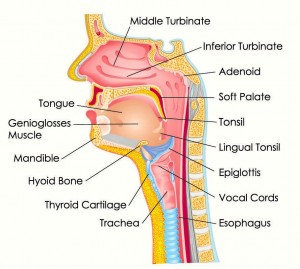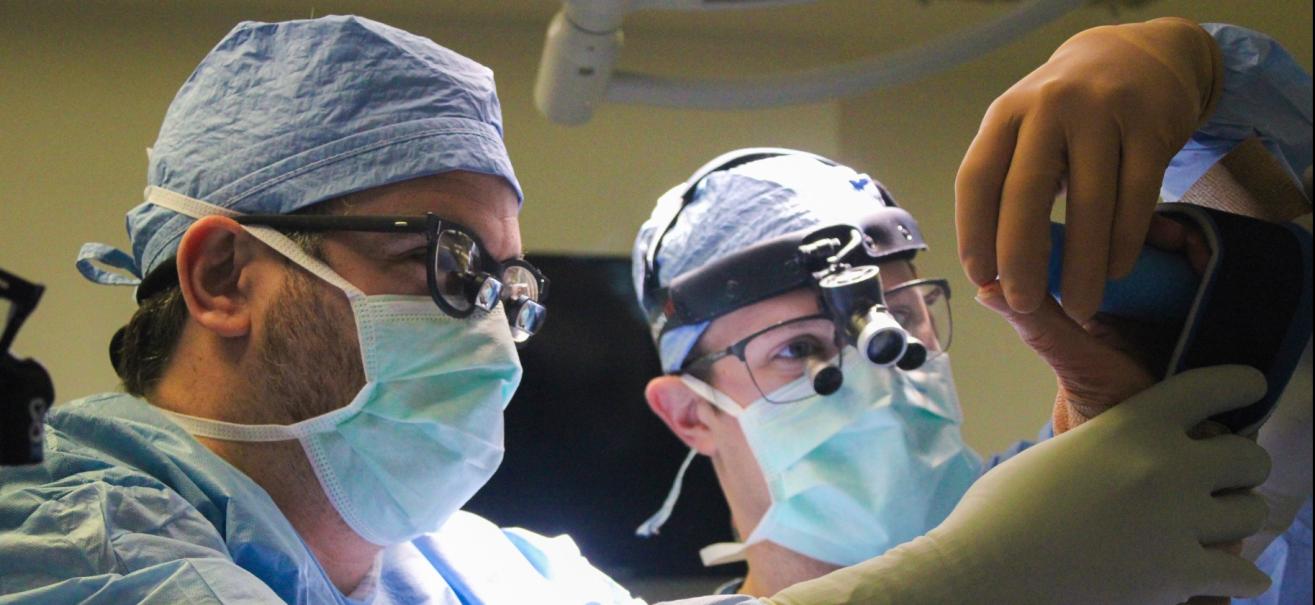ENT Explained Simply — How This Field Supports Long-Term Health
Wiki Article
Checking out the Field of Otolaryngology: What to Expect When You Consult an ENT
Otolaryngology, typically referred to as ENT, incorporates the diagnosis and therapy of nose, ear, and throat problems. For those experiencing associated concerns, seeking advice from an ENT professional can provide quality and alleviation. Comprehending what to anticipate during such appointments is crucial for reliable communication and care. This summary will certainly detail vital aspects of the ENT experience, including common reasons for visits and the procedures associated with medical diagnosis and therapy.
Recognizing Otolaryngology: A Review
Otolaryngology, commonly referred to as ENT (Ear, throat, and nose) medicine, is a specific branch of medication that concentrates on the diagnosis and therapy of problems impacting these important locations of the human body. This field incorporates a broad array of disorders, including those pertaining to hearing, equilibrium, respiratory function, and speech. Otolaryngologists are trained to take care of both clinical and medical treatments, utilizing sophisticated strategies and modern technologies. Their expertise expands past traditional disorders, dealing with problems such as allergic reactions, sinus infections, and hearing loss. Furthermore, they play a crucial function in the monitoring of head and neck cancers, providing detailed treatment customized to private patient demands. Generally, otolaryngology continues to be essential for maintaining health and lifestyle in afflicted people.Common Factors to See an ENT Specialist
Several individuals seek the proficiency of an ENT professional for a selection of reasons, mirroring the diverse nature of conditions that influence the nose, ear, and throat. Common issues consist of chronic sinusitis, which usually leads to relentless nasal congestion and facial pain. Allergic reactions and their associated signs, such as sneezing and itching, additionally prompt sees to these professionals (Sinus). Hearing loss, whether abrupt or progressive, is another considerable reason for appointment. On top of that, people may seek evaluation for throat conditions, consisting of persistent hoarseness or ingesting troubles. Rest apnea, characterized by cut off breathing throughout sleep, is often addressed by ENT experts as well. Each of these problems highlights the relevance of specialized treatment in taking care of intricate ENT-related health problems
Planning for Your ENT Consultation
When getting ready for an ENT consultation, it is essential to gather relevant info and consider any particular concerns. People should compile a comprehensive case history, consisting of previous ear, nose, or throat concerns, surgeries, and current medications. Recording symptoms-- such as regularity, period, and extent-- can give important insights for the ENT expert. Furthermore, people need to prepare a checklist of questions they want to ask, ensuring that all concerns are resolved throughout the visit. Bringing along any kind of pertinent clinical records or examination outcomes can better aid the ENT in comprehending the client's problem. Ultimately, clients ought to confirm their visit information, including date, place, and time, to minimize any last-minute complication. Appropriate preparation can improve the performance of the examination and lead to better outcomes.What to Anticipate During the Assessment
As the consultation starts, the patient can expect to engage in an extensive discussion with the ENT specialist concerning their signs and medical history. The specialist will certainly ask about the period, frequency, and intensity of signs such as hearing loss, nasal blockage, or aching throat. Additionally, the individual's previous medical problems, medications, and any kind of relevant household background will be evaluated, aiding the expert in forming a full understanding of the patient's health and wellness. The ENT may additionally ask about way of living aspects, such as direct exposure to allergens or irritants. This open dialogue establishes a structure for the appointment, ensuring that the client's issues are resolved and setting the stage for any kind of required analyses or referrals for therapy.
Analysis Examinations and Procedures in Otolaryngology
A variety of diagnostic tests and treatments are important in otolaryngology to properly evaluate and detect problems affecting the nose, throat, and ear. Common examinations include audiometry, which determines hearing function, and tympanometry, evaluating middle ear pressure. Nasal endoscopy permits visualization of the nasal flows and sinuses, while laryngoscopy takes a look at the throat and singing cables. Imaging methods, such as CT scans and MRIs, give ear operation for perforated eardrum detailed views of head and neck frameworks. Allergic reaction screening might also be carried out to determine triggers for sinus or breathing problems. These analysis tools enable ENT experts to develop a detailed understanding of individuals' problems, guaranteeing tailored and reliable monitoring plans. Appropriate diagnosis is necessary for successful therapy results in otolaryngology.Treatment Alternatives Offered by ENT Specialists
ENT experts supply a selection of treatment alternatives tailored to attend to certain click this conditions impacting the ear, nose, and throat. These therapies vary from conventional approaches, such as medication and lifestyle modifications, to even more invasive treatments. Allergies may be taken care of with antihistamines or immunotherapy, while chronic sinus problems could require nasal corticosteroids or sinus surgical procedure. For hearing loss, ENT professionals commonly advise listening devices or medical interventions like cochlear implants. In instances of throat disorders, options can consist of speech treatment or procedures to remove blockages. Additionally, they might offer advice for taking care of sleep apnea, including making use of CPAP tools or medical interventions. Overall, the goal is to enhance people' lifestyle with personalized care and effective therapy approaches.When to Look For Follow-Up Care With an ENT
Acknowledging when to seek follow-up treatment with an ENT specialist is essential for taking care of continuous signs or complications connected to ear, throat, and nose conditions. People should take into consideration setting up a follow-up appointment if symptoms linger in spite of first treatment, such as persistent ear discomfort, nasal congestion, or throat pain. Modifications in hearing, equilibrium concerns, or uncommon nasal discharge may also call for more examination. In addition, if a patient experiences side effects from recommended drugs or has actually undertaken a surgery, follow-up treatment is very important to monitor healing and deal with any concerns. Prompt appointments can ensure effective management of conditions, avoid possible difficulties, and give comfort regarding one's wellness. Seeking follow-up treatment promotes proactive wellness administration in otolaryngology.Frequently Asked Inquiries

What Certifications Should I Look for in an ENT Expert?
When looking for an ENT specialist, one must seek board certification, appropriate experience, and strong individual reviews. Furthermore, reliable interaction abilities and a caring strategy can considerably enhance the overall therapy experience.Exactly how Do I Choose the Right ENT for My Needs?
Choosing the ideal ENT professional entails assessing their credentials, experience, and individual reviews (ENT surgery). It is necessary to contemplate their interaction style and technique to therapy, ensuring they line up with the individual's certain wellness requirements and preferencesAre There Any Kind Of Threats Linked With ENT Procedures?
The threats connected with ENT treatments may include infection, blood loss, anesthetic problems, and potential damages to surrounding structures. Clients must discuss these threats with their doctor to understand private worries and warranty notified decisions.Just How Can I Handle Anxiousness Prior To My ENT Visit?
To manage stress and anxiety prior to a visit, people can exercise deep breathing workouts, envision favorable end results, prepare concerns in advancement, and seek assistance from close friends or household, fostering a feeling of reassurance and peace.What Should I Do if I Experience Adverse Effects From Treatment?
If side effects from therapy occur, the person must quickly report them to their doctor. Modifications to therapy or extra treatments might be needed to assure safety and effectiveness in managing their problem - ENT Doctor. As the assessment begins, the patient can expect to engage in a thorough conversation with the ENT professional about their signs northeast ent and symptoms and medical background. These diagnostic devices allow ENT professionals to create a detailed understanding of individuals' conditions, ensuring customized and efficient monitoring plans. ENT experts offer a range of therapy options tailored to attend to specific problems affecting the ear, nose, and throat. When seeking an ENT specialist, one ought to look for board certification, pertinent experience, and solid client reviews. Selecting the right ENT expert includes examining their certifications, experience, and individual evaluationsReport this wiki page